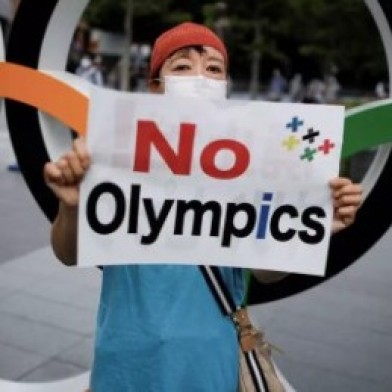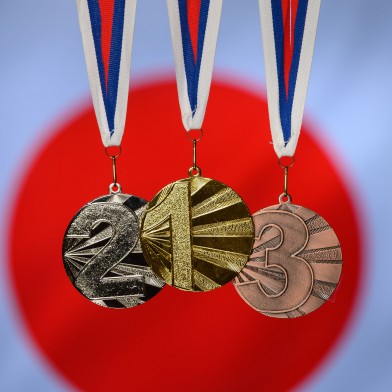Welcome to Asia Media Centre's exclusive series of updates from the ground in the Olympic Village in Tokyo, where athletes give us their personal insights and share their feelings on the mood in Japan.
Jonelle Price is an equestrian who one a bronze at the 2012 London Games. She has been training out of the UK prior to arriving in Japan. During her first weekend at Tokyo 2020, Price placed 12th in the individual eventing competition, and 4th in the cross country team eventing.
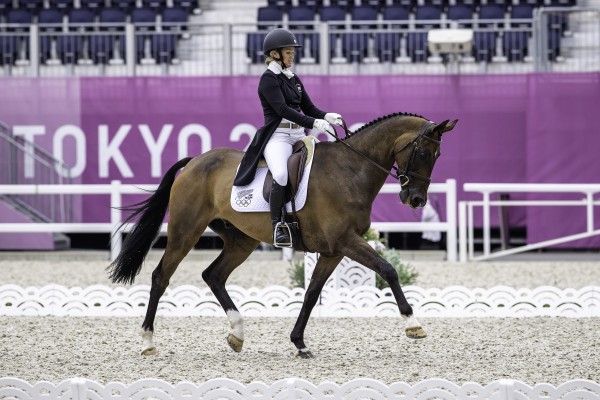
How arduous was your logistical journey, getting to Japan during the pandemic?
Our own journey was long but relatively straight forward, departing London Heathrow and flying via Helsinki. We were met by Tokyo officials upon departing the aircraft and swiftly escorted through a complex but very effective system of Covid testing, immigration and quarantine paperwork - the whole process taking about an hour and a half. From there it was on to a bus for an hour to the Olympic Village, concluding a door to door journey of 23 hours. We are effectively in quarantine whilst here, operating solely between the two bubbles being the Village and the Equestrian Parks. Fortunately our training regime is unaffected as a result.
What about the journey for the horses to Tokyo? How did they get there and what did they go through?
The horses were a little more complex and the journey a lot longer They were required to do a week's quarantine before departing the UK which Team NZ we’re very fortunate to secure a facility local to where we live in Wiltshire (in south-west England). So even though the horses were in quarantine, we were allowed to go home each night. From there it was an 16 hour road trip to Liege in Belgium. A wee rest at the airport before loading on to the plane, landing 18 hours later having flown via Dubai to refuel (literally wait on the tarmac, no unloading). A few hours to get cleared from the airport, three hours road travel and then a tired but happy team of horses arrive at the Equestrian Park - 48 hours door to door!
What is training like in Tokyo – where are you exactly? Any restrictions to talk about?
The Equestrian Park is an incredible venue with world class facilities. It’s not a huge area but it has everything we could possibly need - various outdoor training arenas, a large indoor, air conditioned stables, a sand and gallop track and a veterinary centre. The XC is an hour away so some logistics is involved in relocating out there for the evening prior to XC day.
What’s your experience in the Village/accommodation so far?
Having been to a couple of Olympics previously, it’s hard to not see the limitations that Covid restrictions are putting on Village life. Naturally, the discouragement of shared/communal spaces is sad to see, but totally understandable. It still maintains the true magic of an Olympic Village, the result of bringing together the world's very best athletes from around the globe. The accommodation is basic but comfortable.
How are you and the horses managing in the heat?
So far so good. Lots of air conditioned spaces and thoughtful timing is actually making it very manageable
Are there any positives about running the Olympics during a global pandemic?
Significantly less traffic on our commute apparently!
--
Hugo Inglis is a field hockey player for our national team. The first match (New Zealand vs. India) he competed in was on Saturday, 24 July at 1pm NZT.
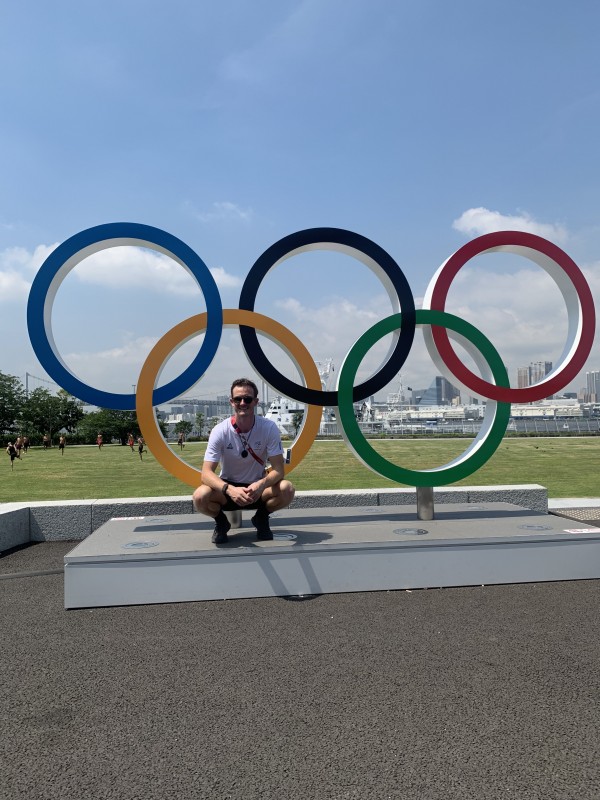
Hugo Inglis | Photo: Supplied
How are you all supporting each other, when your families can't be there?
Inglis: Our team culture is strong, we enjoy going away together and everyone is respectful of each individual's needs here in the Village. A couple of our guys have young children at home, so allowing that down time for each of us to connect back into home (and those important people in our lives) is a pivotal part of getting the balance right.
How is the new Olympics environment, compared to other Games?
It's a pretty similar environment so far. The Village is great and the food hall is as per usual. The difference is just in all the protocols, from mask and glove wearing to social distancing. It is pretty sad to not be able to properly greet and enjoy time with all our friends from around the world (or to meet new people) but this is a small price to pay to be able to compete and hold a safe Games. The Japanese volunteers are all amazing, they have been very welcoming and supportive of us.
What is the mood amongst the New Zealand team?
Excited. We've waited and trained a long time for this moment. The belief in our group and our preparation is there.
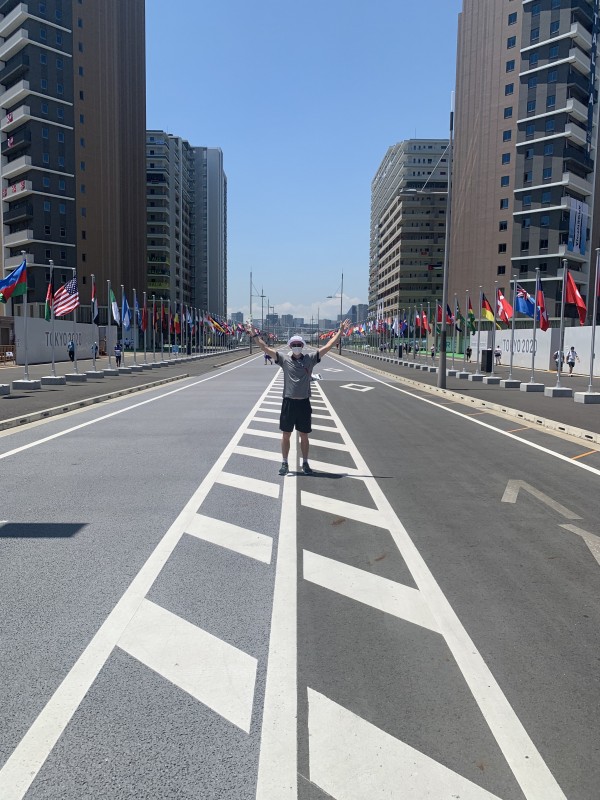
Hugo Inglis | Photo: Supplied
What is it like in the accommodation?
We are comfortable and nice and settled into Village life now. The first few days involved reorganising the rooms to create some space and a nice vibe. The coffee machine is set up and we have a good areas to both relax in, as well as prepare for our matches. The cardboard beds have been a hot topic in the media, they are a good initiative and I'm really pleased to see some responsibly sourced materials throughout the Village. As athletes we need to do a better job of reducing our individual carbon/waste footprints alongside this.
What restrictions are being placed on training and is that making things harder?
Nothing is really making things too much harder. At the end of the day we get to play a normal hockey match. Dealing with the [extreme] heat is more of a factor than the restrictions.
How does Tokyo feel in general… is it as “anti-Olympics” as the media suggests?
It is hard for us to comment. The volunteers have been very welcoming and amazing so far. We have had a very warm welcome which we are very appreciative of. As we are under very tight restrictions here we are not interacting with the public so much. For us it is so important that we adhere to these restrictions as we see it as a sign of respect to the people of Japan. If we were to breach protocols we place additional risk on the Games and the people of Japan, which for our group is simply unacceptable.
--
Rob Waddell – NZ Team Chef de Mission and Sydney 2000 gold medalist, has arrived in Tokyo, Japan, for the Olympic Games. It's an exciting, although very different, experience to all games from the past. AMC gets an exclusive chat with Waddell to get a feeling from the Village on the ground.
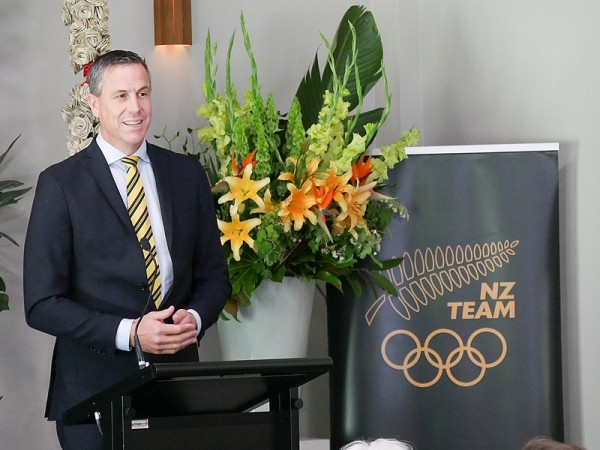
Rob Waddell | Photo: Wikimedia
What’s different for athletes this year at Games time?
Waddell: The field of play will be the same so watching at home the competition will be as amazing as always.
Off the field of play things will be different. There will be social distancing, daily Covid testing and temperature checks on entry to Village and venues. There will also be plexiglass partitions in the dining hall and gyms.
In the past we’ve had a great team longue and social areas where athletes have been able to cheer on their teammates – unfortunately that wont be possible this time round.
How are we preparing the athletes?
We’ve been working with athletes and their sports to help them understand all the requirements. It’s been a rollercoaster and we’re so proud of our team and how they’ve handled all the uncertainty over the past year and a half.
Will athletes still march in the opening ceremony?
Yes, we named Sarah Hirini from Rugby Sevens and Hamish Bond from rowing as our flagbearers the other week. There will be a smaller New Zealand contingent than usual but they will be flying the flag and representing our nation proudly.
What effect is all of this going to have on athletes?
It will be a different Games experience for athletes. The field of play will be the same but it will be a lot more restricted outside of that. We have a fantastic psych and wellness team that work with our athletes and they’ve been helping them prepare for this environment and they’ll also be with us at Games time.
It’s going to be hot over there, how have we been preparing?
Heat prep has been a major body of work for us in conjunction with High Performance Sport NZ. We’ve had athletes training in heat chambers, doing saunas and holding camps in hot environments. We’ve also got ice vests for athletes and will be using ice slushies. Athletes are also heading over early to acclimatise.
- Asia Media Centre
